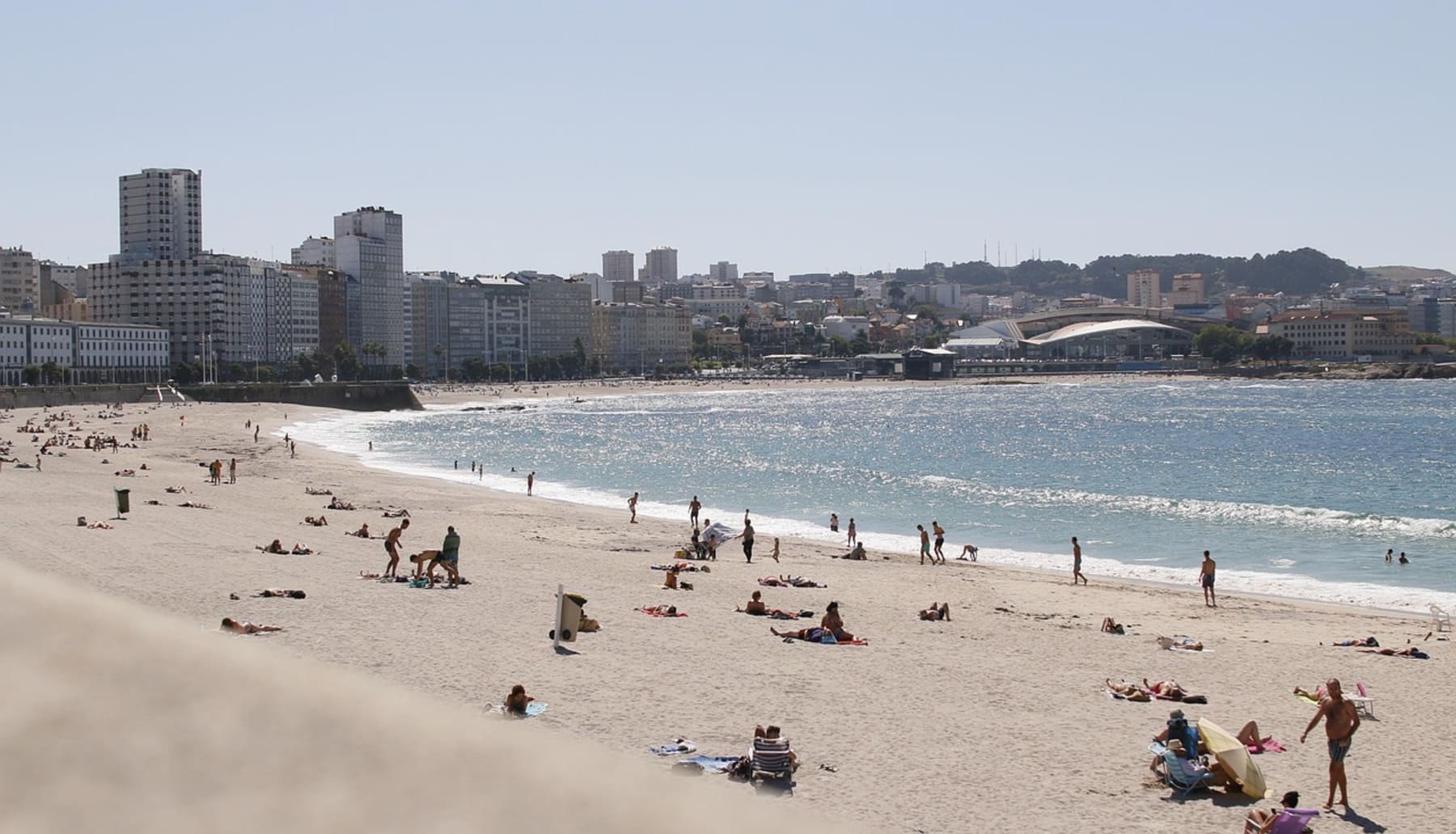The Spanish beaches have the lucky honor of being the best in the world as the 642 blue flags that this summer will wave in the sands of the national coast. A distinction that places Spain at the head of the world podium Thanks to this environmental initiative.
Precisely, 15 % of the beaches around the world with environmental banners are in Spain, which evidences “the excellence of its waters, its accessibility and security,” according to a report by the Association of Environmental and Consumer Education (Adeac) where more than 5,000 points have been analyzed in fifty countries on the five continents.
In total, Spain will count these summer months on its coasts with 749 flags, of which 642 will be seen on beaches (4 more than in 2024), 101 in sports ports and 6 more for sustainable tourist boats.
642 Blue flags for the Spanish beaches, coping the world podium
Spain leads one more year the world ranking of blue flags for beaches, with 642, and is in third position in terms of number of badges for sports ports, with 101, according to the last list of the Association of Environmental and Consumer Education (Adeac), promoter of this environmental initiative.
15 % of the planet beaches with environmental banners are located in Spain, which evidences “the excellence of its waters, its accessibility and safety,” according to the report, which includes data from more than 5,000 points in 52 countries on the five continents.
In total, Spain will count on its coasts this summer with 749 banners: 642 on beaches (4 more than in 2024), 101 in sports ports and 6 for sustainable tourist vessels. Adding the contributions of Portugal (another 444 blue teachings), LIberian Peninsula will look up to 1,193 flags and 23 % of the world total, something that does not happen in any other area of the planet.
The best beaches for municipalities and autonomous communities
The Galician town of Sangenjo (Pontevedra) heads the list by municipalities, With a total of 19 badges (17 for beaches and 2 for sports ports), followed by Vigo (Pontevedra) with 13 flags (12 for beaches and 1 for sports port) and Orihuela (Alicante) with 11 flags (10 for beaches and 1 for sports port). In total, 247 municipalities from 13 Autonomous Communities and the two autonomous cities (Ceuta and Melilla) will be able to raise the blue shows this summer.
For José Palacios Aguilar, president of Adeac, the success of the blue flag is due to municipal, autonomous and national collaboration, in addition to that of companies, universities, foundations and, in general, citizens who who “They demonstrate a responsibility to realize” these results thanks to the combination of environmental education, management and information, in addition to the fulfillment of current legislation and the excellent quality of water.
“We can proudly say that for Spain it is again a year of extraordinary results,” said the Secretary of State for Tourism, Rosario Sánchez Grau, who has insisted on the importance of this program in “the continuous search for quality and excellence to preserve the environment and, especially, the quality of the water, the management of natural resources and biodiversity ».
The Valencia Community Leadra, by autonomous communities, the Spanish list with 143 flags (5 more than in 2024), followed by Andalusia with 138 (8 more), Galicia with 108 (6 less) and Catalonia with 101 (6 more).
The rest of the regions with this distinction are Canary Islands with 47 flags (loses 9 compared to last year), Balearic Islands with 32 (1 more), Murcia region with 29 (2 more), Asturias with 14 (2 less), Cantabria with 11 (1 more), Extremadura with 7 (2 less), Melilla with 4 (1 less), Basque Country with 4 (4 less), Ceuta with 2 (1 less) and Navarra with 1 (1 less).
In this edition, 697 Spanish beaches of which 642 (91 %) have achieved the precious badge, “which demonstrates the high level of the candidacies presented,” according to the organization’s data. The main reasons for not obtaining this badge are “Do not reach the excellent quality of bathroom water »and« Failure to comply with the law of coasts, due to excess occupation or by the presence of unauthorized facilities ».
In this context, Palacios Aguilar recalled that to obtain the blue badge “it is not necessary” to have showers on the beaches and in fact, he has discouraged its installation for the “unnecessary waste of fresh water” that it implies, in addition to being “a source of infections.”
Beaches that are released with blue flag
The organization highlights the beaches where a blue flag will wave for the first time: Puerto de Sotogrande (Cádiz); The Monteros, Adelfas and Cenicero-Las Dunas (Málaga); Helgueras (Cantabria); Varator, Callao and Barques-Estaciò (Barcelona); El Bol, Punta Negra and Ortigues-Campo (Alicante); Source of the bathrooms (Castellón); Guardamar de la Safor y Malvarrosa (Valencia); Or Mende (Pontevedra) and Calblanque and El Arenal (Region of Murcia).
Other aspects are the special mentions of Environmental Education to Badalona and Gavá (Barcelona) and Torreblanca (Castellón); for lifeguard services to Fuengirola (Málaga), Palma and Sant Llorenç des cardassar (Illes Baleares); for accessibility and attention to people in disabilities: Arnuero (Cantabria), Chipiona (Cádiz) and Malaga. EFE / ECOTICIAS.com

